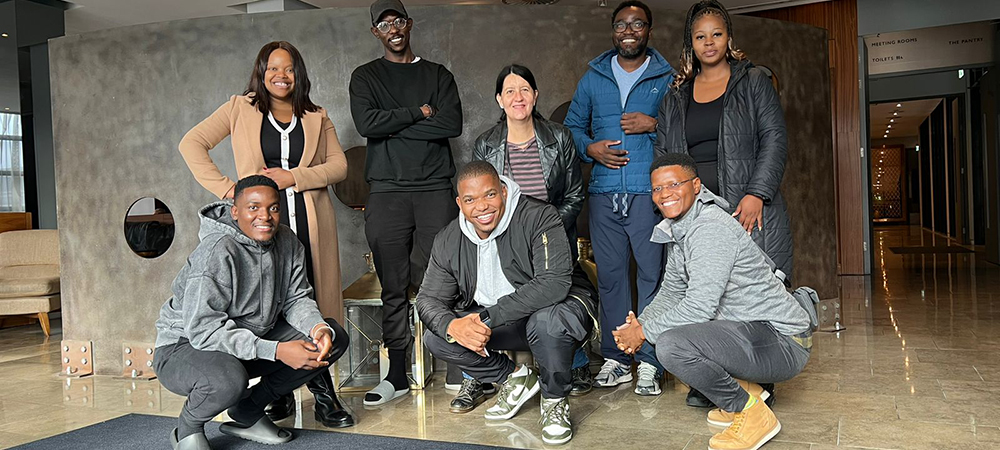The Irish Tech Challenge South Africa has announced that the 2023 winning cohort is set to travel to Ireland for a 10-day curated immersion and networking programme with access to top industry leaders and potential for further funding.
The Irish Tech Challenge is a prestigious competition that seeks to unearth high-impact South African start-ups that have developed innovative, SDG-aligned solutions.
The winning five start-ups emerged from 266 applications and were unveiled on 21 November 2023. From AgriTech to BioTech to HealthTech, their innovations demonstrate the depth and diversity of talent in the South African tech landscape.
The five winning start-ups:
- Thato Schermer — Founder, Zoie Health (HealthTech)
- Neo Hutiri — Founder, PeleBox (HealthTech)
- Vuyo Pakade — Founder, Foonda Africa (HRTech)
- Dr Benedicta Durcan — Founder, AfroBodies (BioTech) and
- Tumelo Chiloane — Co-founder, Desert Green Africa (AgriTech)
These start-ups, who travel to Dublin on February 9, 2024, are now poised to grow their entities by leveraging Ireland’s growing status as a major global tech and innovation hub, drawing from the vast pool of Irish tech expertise as well as industry experts, investors, and fellow innovators. As an EU-member state, Ireland further serves as a gateway to the European market and beyond for these high-impact South African start-ups.
The Irish Tech Challenge South Africa is a partnership between the Embassy of Ireland in South Africa, the Department of Science and Innovation (DSI), the Technology Innovation Agency, along with implementing partners Tshimologong Digital Precinct (South Africa) and Dogpatch Labs (Ireland). It amplifies the commitment of Ireland and South Africa to incentivize mutually beneficial partnerships between Irish tech expertise and South African entrepreneurs, while fostering technological advancements and creating a global network of innovators committed to positive change.
The showcase in Dublin not only highlights the accomplishments of these five entrepreneurs but also serves as an opportunity for collaboration and knowledge exchange between South Africa and Ireland, said Austin Gormley, Ireland’s Ambassador to South Africa: “This initiative is testament to the power of collaboration and innovation in addressing global challenges through South African-developed solutions combined with Irish expertise. The solutions promoted by these entrepreneurs have the potential to create a positive and lasting impact in South Africa and beyond, supporting the broader goals of sustainable development.”
The Dublin experience will not only be an opportunity for the South African start-ups to showcase their innovative solutions and access to the Irish tech sector, but also a chance for Dublin’s tech community to witness first-hand the ingenuity emerging from South Africa.
Deputy Director-General for International Cooperation and Resources at the DSI, Daan du Toit, said the Irish-South African partnership has proven to be a remarkable success, creating a dynamic platform for tech start-ups to thrive. “The Irish Tech Challenge SA stands as a shining example of how bilateral relations can drive progress in the tech industry. It has not only facilitated the exchange of ideas but has also laid the foundation for enduring partnerships that will continue to shape the technological landscape for years to come.”
Launched in 2022, the Challenge is fast becoming a catalyst for innovation within the South African tech community, and serves as a model of effective inter-governmental, public, and private partnerships that stimulate the entrepreneurial ecosystem. It builds on the historical ties between Ireland and South Africa and highlights the crucial role of both local and international stakeholders collaborating to support start-ups in their growth journey.
Promoting innovation, fostering technology development, and ensuring effective technology deployment within South Africa, the program places special emphasis on empowering diversity. The Irish Tech Challenge South Africa particularly encourages applications from women, young entrepreneurs, people from historically disadvantaged communities and start-ups aligned with the UN Sustainable Development Goals.
Click below to share this article

